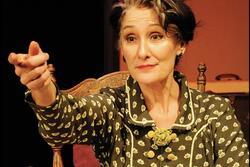Reflections on Stonewall
The wee hours of June 28, 1969, began with a routine enough event: a police raid on the Stonewall Inn, a Greenwich Village gay bar owned by the mafia (as nearly all gay bars were at the time, since bars that catered to homosexuals were usually denied a liquor license, and only mob-owned bars could afford to pay off the police so that they could operate without a license). The cops entered with their usual intentions: to check id cards and arrest those found to be cross-dressing.
But that night, something unexpected happened. The bar patrons resisted arrest, wouldn't hand over their identification. What began as a scuffle turned into a riot, as the police got rougher and, outside the bar, Christopher Street filled with a crowd of bar patrons and passers-by who taunted and attacked the police officers. The bar was destroyed in the fighting. Awed by what had happened, people returned to the scene on subsequent nights to continue the battle.
These events - known now just as "Stonewall" - have acquired an almost mythical stature. Stonewall is often credited as the birth of the gay rights movement, even as the first moment of gay resistance to institutionalized oppression. Of course, it was no such thing. Gay people had resisted before, had fought back in bars and elsewhere. This was just one ofthe first times that they seemed to "win" and got some media coverage. And organizations such as the Mattachine Society and the Daughters of Bilitis had been working since the early 1950s to provide support to homosexuals and advocate (albeit quietly, with an eye toward assimilation) for their rights and normalcy.
Neither was Stonewall immediately and universally seen as a watershed. The people who knew about it recognized that something important had happened. The Mattachine Society, using a gay euphemism for doing something that reveals one to be gay, referred to the riots as "the hairpin drop heard round the world." Of course, as an organization concerned with the normalization of homosexuality, they were ambivalent about an event that reinforced an image of gay people as violent, disorderly, cross-dressing, and given to breaking out in a chorus girl kick-line.
But lots of people - even lots of gay people - didn't know anything had happened. Lesbians, for example, were not generally part of the Stonewall scene. Activists who closely followed the other riots of the period - as Frank Rich admits in his op-ed today - missed Stonewall entirely.
What happened at Stonewall was different from many of the other civil rights and resistance activities of the 1960s because it was totally spontaneous and led by the most marginalized - transvestites and homeless street kids, those with the least to lose. (Even Rosa Parks - mythologized as the spontaneous resistor par-excellence - is now known to be a lifelong activist chosen by the local Montgomery civil rights community as a good test case for bus segregation.) There was no organization or conscious political action behind the Stonewall riots. And yet, it was born out of the ferment of the 60s, the courage and vision of other activists in other movements whose spirit seeped into the air of the time, even in the smoky backrooms of Mafia-owned bars.
Activists who had cut their teeth in the civil rights, antiwar, and nascent radical feminist movements also played a role in making Stonewall what it has become. The Gay Liberation Front - the first gay rights organization to use the word "gay" in its name - formed soon after Stonewall and kept it on the radar. (That "gay" was a scarier word than "Bilitis" gives you some sense of the time.)
So let me step down from my historian's lectern and finally get around to my point: what I'm left wondering about, as I reflect on Stonewall from a (shocking) distance of 40 years, is how these watershed events happen. Is a spontaneous eruption ever really spontaneous? Is it politically demeaning to call it so? Who are the people who make these events happen, and who are the people who infuse them with their mythologies, cementing them in history? What responsibility do we bear to uphold and celebrate the mythologies, and what responsibility to question them?







I would like to add to my comments on Pearl Hart: Pearl Hart was an active member of the Chicago chapter of the National Lawyers Guild, an organization created in the 1940s(?) as a liberal response to the conservative American Bar Association.